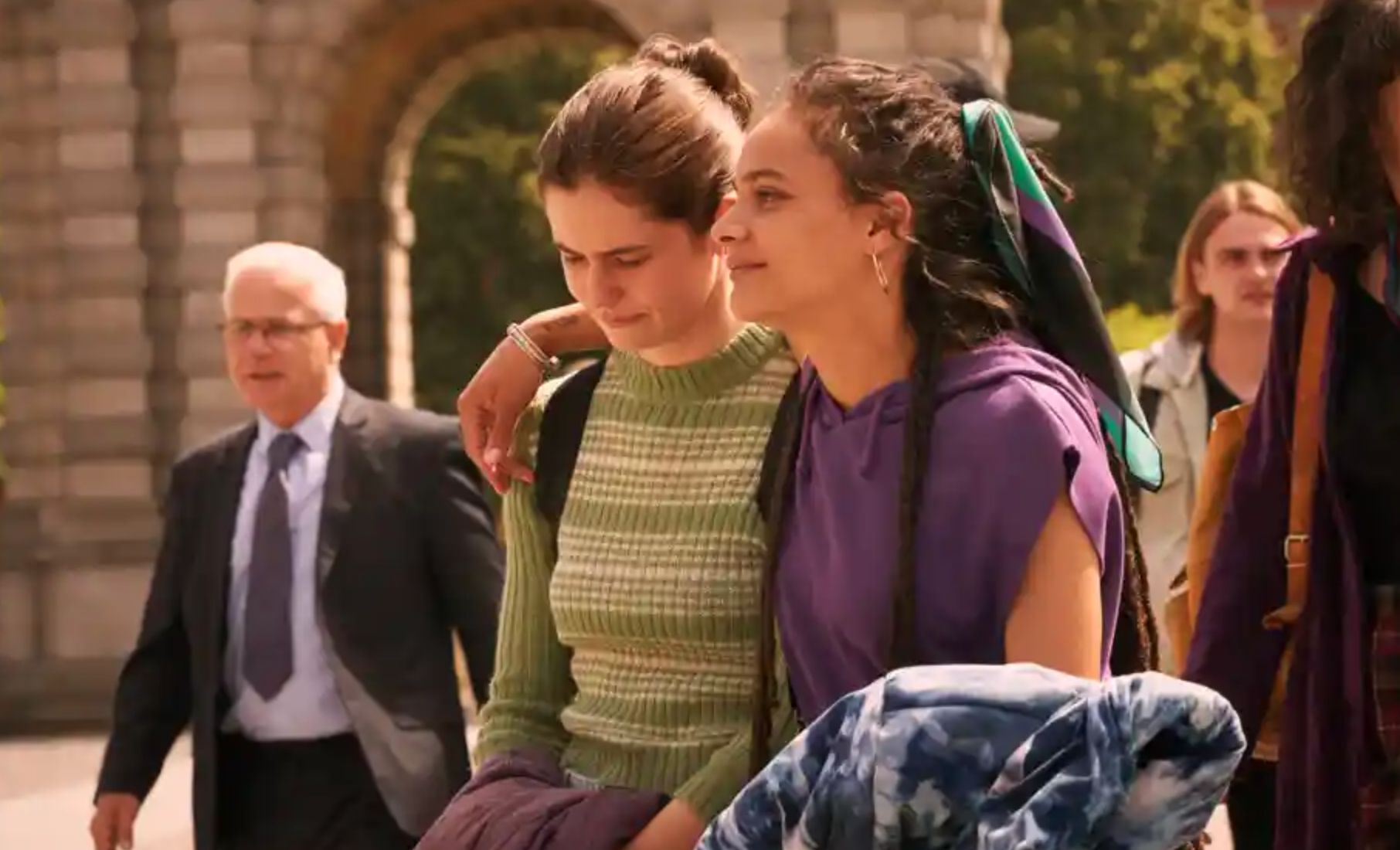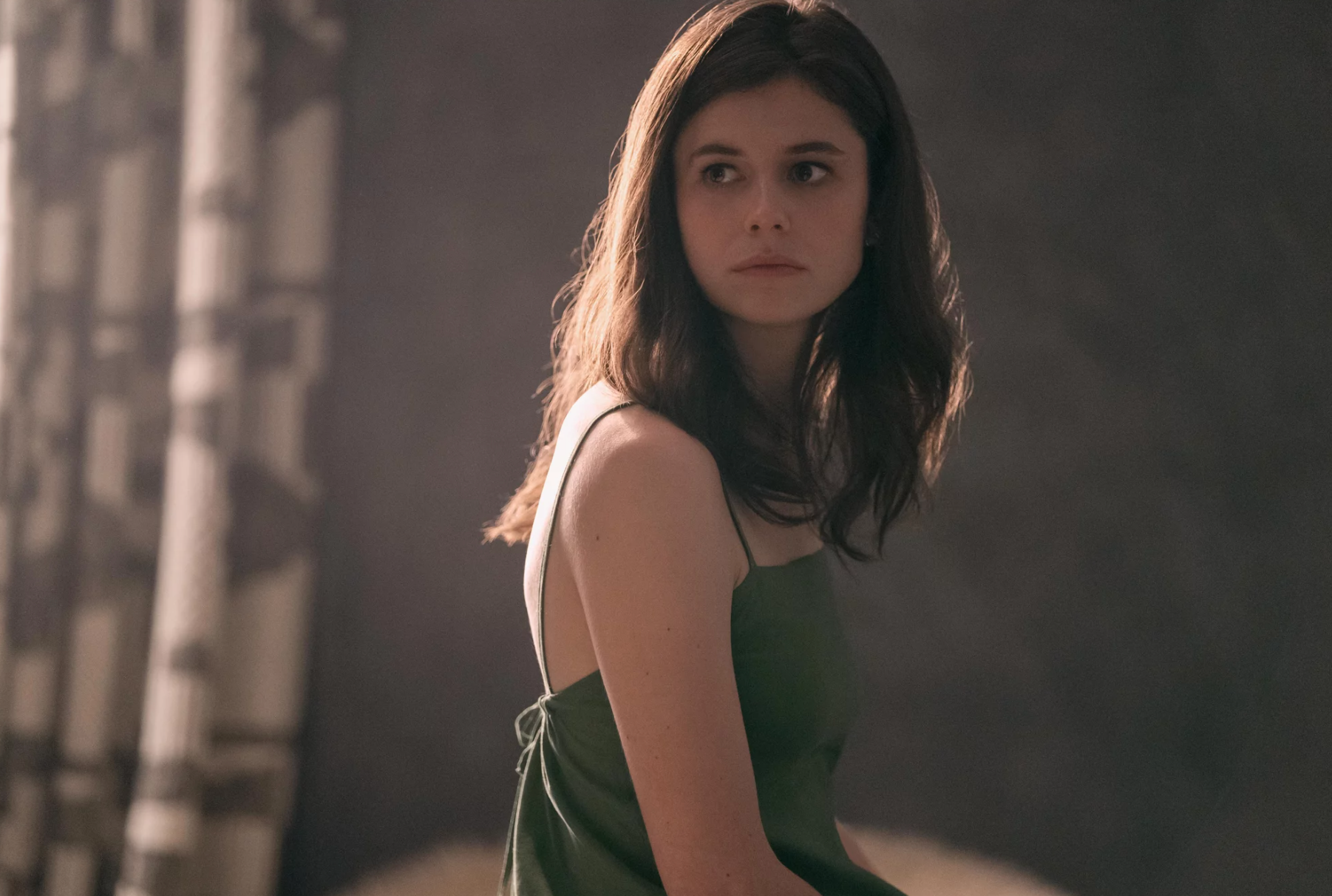News feed
At first, I hated Conversations With Friends. I mean hated. The first episode left me so bored that I almost gave up – the only reason I didn’t was because I knew I’d be writing this review, and didn’t want to do it (and you readers) a disservice. Thankfully I persisted, because this is a series that improves, although whether it’s enough to capture its audience is debatable.
There was a lot of hype around Conversations With Friends, the Sally Rooney adaptation of arguably her second-most famous novel, the first being (of course) 2020’s blockbuster Normal People. The love we had for Normal People definitely fuelled the hype for Conversations With Friends, and that is what may ultimately be its demise.
You’re not going to find the crackling chemistry of Connell and Marianne in this series. Instead, we’re given a complicated web of relationships, and while each one does, in true Rooney style, speak volumes about our own human experiences, none are remotely desirable. We have our protagonists, Frances and Bobbi, ex-lovers turned best friends about to embark on their final year of college. They meet novelist Melissa and her actor husband Nick at a poetry night, and soon start spending time in their circles. Within two episodes, Frances and Nick have started a secret affair, while Bobbi and Melissa flirt overtly at parties. Meanwhile, Frances and Bobbi have their own issues – it’s clear Bobbi is an Alpha presence in their friendship, and you can see the codependency coming a mile off.

It’s a mess. But it’s meant to be – this is not a love story, it’s a story about relationship power dynamics, secrets and not-secrets, and all the other complexities that make up the way we interact with others. On that level, this adaptation nails it. The problem is, what’s enthralling in novel-form isn’t always going to be gripping on the small screen.
In the novel, these complexities and the slow pace works. On screen, it’s a slog. This series is just so, so slow. Episodes drag on, even though they’re surprisingly short at thirty-minutes. At a time in screen history where we are used to slick productions with cliffhangers and early episodes designed to hook us so we’ll binge the whole series, slow paced dramas feel strange – and, unfortunately, err on the side of boring. Is this fair? Probably not.
But Normal People was slow-paced. So why did it work, and Conversations With Friends doesn’t? There are a lot of similarities between the adaptations of Conversations With Friends and Normal People, actually. Both favour gritty realism over glossy Hollywood cinematography and soundtracks. This is real life, not fantasy – Frances and Bobbi wear minimal (if any) makeup, dress like university students not fashion models, and live in appropriately modest flats in Dublin. This realistic take was what won our hearts with Normal People – we were reminded of our own first loves, awkward sexual encounters, shifting emotions as we made our way through our late teens and early twenties. We were drawn to Connell and Marianne because they mirror our own experiences.
Maybe it’s because I’ve never had an affair or dated an older man, but I did not have the same pull toward the characters in Conversations With Friends. I could see that the series was giving Frances and Nick’s relationship a similar treatment – the awkward text exchanges, the loaded conversations about Nick’s marriage, the anticlimactic on/off nature of their affair – but I didn’t identify with it. It didn’t grip me – and this is where Conversations With Friends fails. There is nothing gripping here. I did find more to connect with when it came to Bobbi and Frances’ friendship, but not in that gut-wrenching, nostalgia-fuelled sense that Normal People delivered. I just don’t care enough about the characters and what happens to them, which is more to do with adapting this particular story, and not so much how it was adapted.

What Conversations With Friends does do well is portray the awkwardness of youth – that period where we are for all intents and purposes adults with complete agency over our lives, but also don’t know shit, to put it bluntly. Frances stumbles blindly through her affair with Nick, only the second person she’s slept with. Bobbi is all brash confidence with little to no actual experience to back it up, as evidenced by her reaction to Frances’ affair.
This is probably the one theme in Conversations With Friends that resonated with me. We all remember those years – either thinking you knew everything before realising you knew nothing, or being so aware of your naïveté that you live in a constant state of unease. Still, this one theme is so buried amongst the messy relationships in this series, it just doesn’t pack a strong punch the way Normal People ruined us with its observations on early romance.
So, is the series worth a watch? I would have said no after episode one, but Conversations With Friends surprisingly had me hooked after episode three or so. It might be slow to the point of tedium at times, but thanks to short, thirty minute episodes and enough uncertainty to keep you interested in what happens next, you’ll likely find yourself bingeing it in a weekend.
Conversations With Friends is currently streaming on Amazon Prime.





